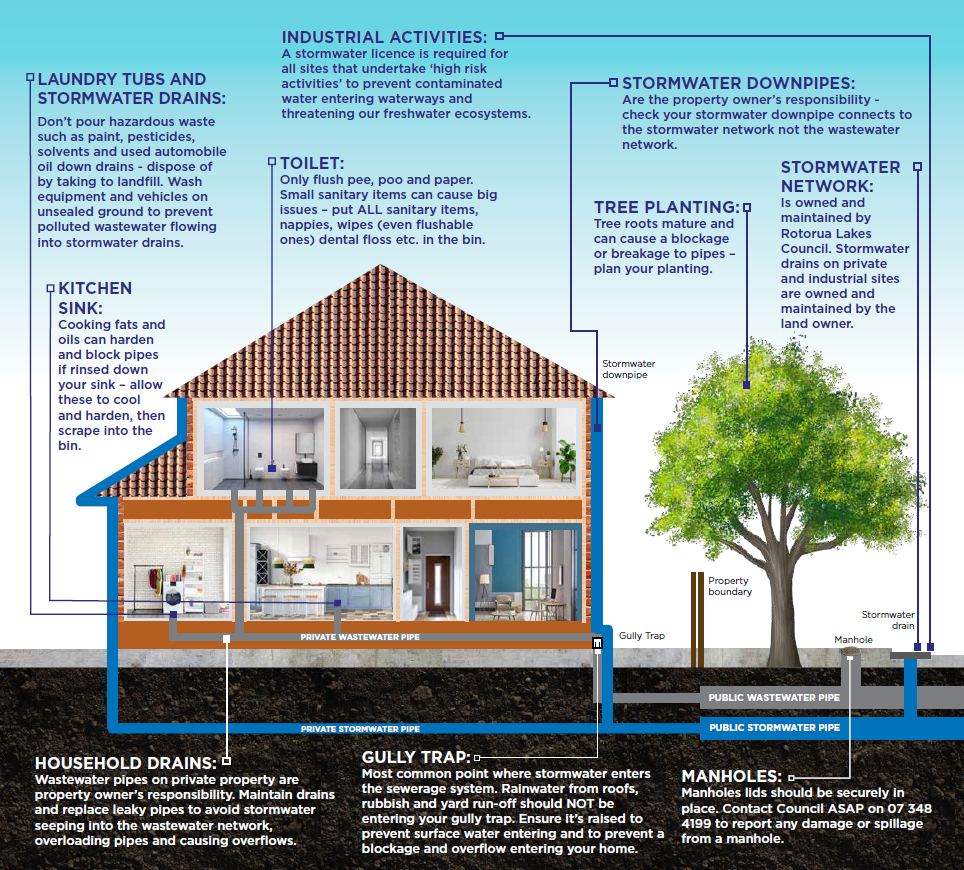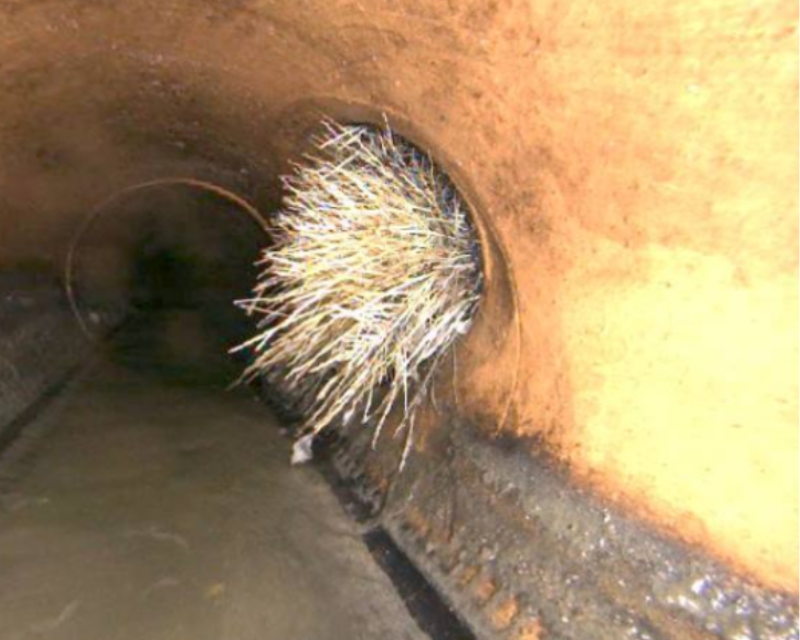How the Wastewater System Works
Gully traps
Gully traps are the most common point where stormwater enters the sewerage system. A good gully trap has covers and a high surround that stops rainwater going into the wastewater system during periods of heavy rainfall.
A faulty gully trap will let rainwater into the sewer/wastewater system. Gully traps that are not set up correctly can allow stormwater runoff to enter them and into the wastewater system where it shouldn’t be.
Gully traps must be installed no less than 50mm above a paved surface such as a concrete driveway or foot path and no less than 100mm above an unpaved surface such as gardens and grass areas. Ensure they are raised to prevent a blockage and overflow entering your home.











